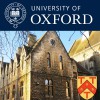Prabodhankar Thackeray: a paradoxical instigator of plurality in the Non-Brahmin Print sphere
‘Circulation of ideas’ in Maharashtra has been a critical site of investigation amongst scholars working from ancient to modern times. Maharashtra’s history and culture, like all other regions in India, have undergone massive changes in terms of the way it has been perceived especially in the socio-political realm. As far as modern institutions are concerned, family, kinship and community have been instrumental in molding a peculiar notion of the ‘public’. Along with these, the ‘public-political’ domain, especially of the early 20th century, was largely influenced specifically by the moral and ethical judgements of urban educated, upper caste elites of the 19th century.
At the same time, apart from the Brahmins, how the non-brahmin, ‘dominant’ Marathas used the site of print and its intimate connection with the performative world has largely been an ignored aspect of the circulatory discourse of everyday life in the modern colonial period. The colonial period saw the rise of a variegated set of anti-colonial voices which catered to both nationalist and regional demands. Leading nationalists from Maharashtra like Tilak, who had a significant impact on Pan-Indian anti-colonial struggle, have been well documented. However, the impact of regional leaders on shaping the political consciousness of people both through print and performance amidst the anti-colonial narrative has largely been an underexplored area of research. One such prominent figure was Prabodhankar Thackeray. Known as a prolific writer, journalist, anti-untouchability crusader and someone who believed in the rhetorical power of performative world, Thackeray was a unique cultural polyglot.
I propose to study the public persona of Thackeray and how he significantly impacted the domain of both print and performance. This study will be crucial for three reasons. Firstly, Thackeray’s support for the assertion of Maratha-Kayastha dominance and resistance to Brahmin hegemony in the public domain is crucial to navigate how the circulation of his ideas through his magazine Prabodhan shaped the discourse on ‘religio-nativism’. Secondly, Thackeray played a pivotal role in bridging the two seemingly distinct circulatory domains of print and performance by using the power of print to disseminate his writings on street plays to a wider audience. More than seeing him as a local figure, Thackeray was a regional figure whose vision for using the circulatory-reflexive power of the print domain made him reach out to remote areas of the Bombay presidency. In this way, I argue that Thackeray started mobilizing new reading and listening audience away from the largely urban belt of the Bombay-Poona region. By this, he used his physical as well as ideational mobility to straddle the urban-rural divide by using his power of oratory as well as his colloquial, accessible writing. I argue that this regional narrative of the vernacular medium needs to be undertaken in order to make a deeper sense of the larger issues of nation and nationalism. The crisscrossing and overlapping nature of Thackeray’s political arch will further stimulate debates on unpacking the growing anxiety of power sharing between Marathas and Brahmins. Thackeray’s own ambiguous positions on conservatism and Hindu Nationalism whilst championing the cause of anti-untouchability will explore the complexities of the circulatory discourse in the vernacular medium.




